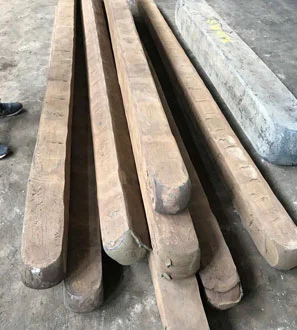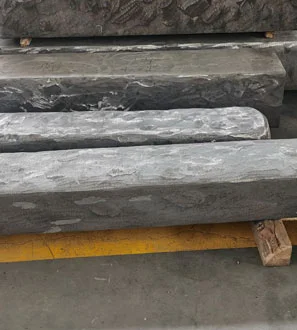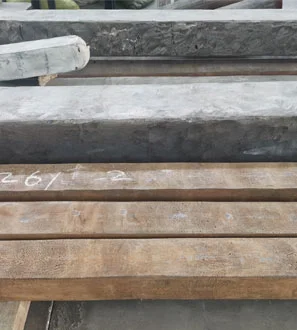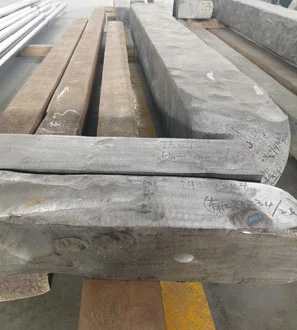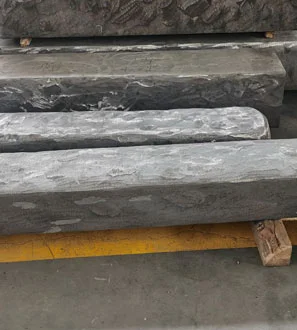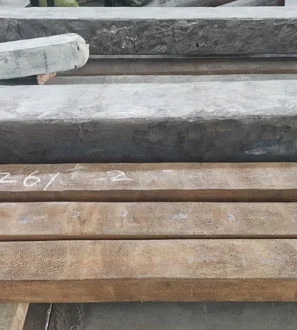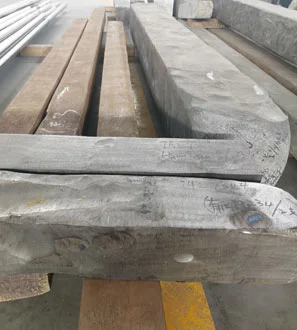Thank you for your
attention on Yesheng !
Titanium Forgings and GR1 Titanium Billets Uses in 3d printing
In the realm of manufacturing, 3D printing stands out as a revolutionary technique, transforming the way complex parts with intricate designs are produced. Titanium, with its exceptional strength, lightweight nature, corrosion resistance, and biocompatibility, has emerged as a standout material for 3D printing, offering a myriad of possibilities in diverse industries.
Gr1 Titanium Billet Applications in 3D Printing
Prototypes and Models
Titanium forgings and Gr1 Titanium billets take center stage in the creation of high-fidelity prototypes and models. Industries such as aerospace, medical, and automotive benefit from the ability of Titanium to withstand dimensional changes, ensuring accuracy in the production of complex geometries.
Functional Parts
The use of Titanium forgings and Gr1 Titanium billet extends to the production of functional parts requiring high strength, lightweight properties, and corrosion resistance. Applications span across engine components, aerospace structures, and medical implants.
Custom-Made Products
The flexibility of 3D printing allows for the production of custom-made products tailored to specific needs. Titanium forgings and Gr1 Titanium billets, with their precision and intricate design capabilities, are particularly well-suited for creating bespoke items.
Rapid Prototyping and Manufacturing
Accelerating the product development cycle, Titanium forgings, and Gr1 Titanium billets enable rapid prototyping and manufacturing. This not only reduces lead times but also enhances overall efficiency while minimizing costs.
Repair and Restoration
In critical applications where downtime is costly, Titanium forgings and Gr1 Titanium billets find utility in repairing or restoring damaged components. Their durability and corrosion resistance make custom titanium products ideal for long-term restoration projects.
Advantages of Gr1 Titanium Billet in 3D Printing
Exceptional Strength-to-Weight Ratio
Titanium's high strength-to-weight ratio facilitates the creation of lightweight yet robust components, leading to reduced material consumption and improved fuel efficiency.
Excellent Corrosion Resistance
In harsh environments such as marine and aerospace applications, Titanium's inherent resistance to corrosion ensures the longevity and reliability of printed components.
Biocompatibility
Considered biocompatible, Titanium is suitable for medical implants and applications involving contact with living tissues, expanding its utility into the realm of healthcare.
Dimensional Accuracy and Precision
Titanium alloy 3d printing and Gr1 Titanium billets ensures high dimensional accuracy and precision, meeting the stringent requirements of various industries.
Complex Design Capabilities
Titanium's ability to withstand complex geometries empowers 3D printing to produce intricate and detailed components, surpassing the limitations of traditional manufacturing methods.
Durability and Longevity
Known for their durability and longevity, forge welding titanium and Gr1 Titanium billets guarantee sustained performance in demanding applications, adding value to the overall lifecycle of products.
Limitations of Gr1 Titanium Billet in 3D Printing
Higher Cost
The relatively higher cost of Titanium can contribute to an overall increase in the cost of 3D printed components, impacting economic feasibility.
Complexity of Post-processing
Specialized post-processing steps, such as machining and heat treatment, are required for Titanium, adding complexity to the manufacturing process.
Limited Material Availability
Compared to other 3D printing materials, the availability of Titanium forgings and Gr1 Titanium billets may be more restricted.
Potential for Porosity
The occurrence of porosity during 3D printing with Titanium may affect the mechanical properties of the printed components.
Specialized Equipment
Due to its high melting point and reactivity, printing with Titanium demands specialized 3D printing equipment, contributing to the overall investment required.
Titanium forgings and Gr1 Titanium billets are at the forefront of innovation in 3D printing, offering a unique combination of strength, lightweight properties, corrosion resistance, and biocompatibility. For competitive titanium billet cost direct from China titanium billet manufacturing company, contact Yeshengti. As 3D printing technology matures and the cost of Titanium becomes more competitive, the applications of Titanium in 3D printing are poised to expand across industries. The journey of Titanium in 3D printing represents a symbiotic relationship, where the material's exceptional properties unlock new frontiers in design, functionality, and efficiency.
 English
English  日本語
日本語  한국어
한국어  français
français  Deutsch
Deutsch  русский
русский 




